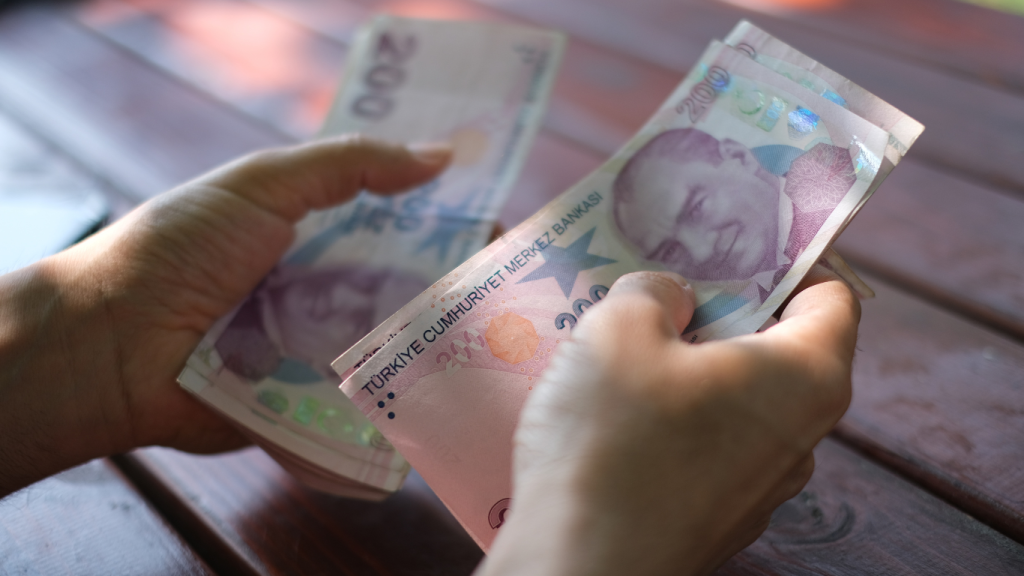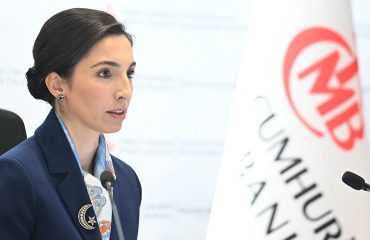

Milking a cow constantly makes it hard to obtain sufficient and quality milk. Eventually, the cow becomes unwell and can no longer produce milk. The same goes for taxes.
Milking a cow constantly makes it hard to obtain sufficient and quality milk. Eventually, the cow becomes unwell and can no longer produce milk. The same goes for taxes. Extracting more taxes than citizens, businesses, and institutions can bear may lead to economic instability and injustice. Excessive tax burdens become unsustainable, especially for low-income groups and struggling companies.
This situation reduces living standards and leads to a decline in economic activity, making tax collection increasingly difficult. In the long term, such policies negatively impact economic growth, as businesses may limit investments or relocate abroad due to high tax burdens.
For the tax system to operate healthily, governments must maintain a balance in the burden on citizens. Fair and sustainable tax rates foster economic growth while ensuring that social services are also sustainable. Instead of collecting taxes at any cost, supporting resource-generating groups is crucial to maintain balance and ensure a sustainable economic future.
Türkiye’s taxing problem
Rising taxes, high penalties, privatizations conducted in a non-transparent manner, and public or infrastructure payments with guarantees are now causing significant discomfort. We are paying whatever is demanded, even if it exceeds our capacity, and we cannot even question what is done with the money taken from us, which reduces our income and investments.
Due to an insatiable public administration that spares no expense, the Treasury is becoming increasingly bloated; it is never satisfied and continues to demand more as long as its accounts do not balance. The sale of Treasury lands, waves of privatization, and new tax practices that defy logic are becoming strategies for the state to manage its growing debt and revenues.
While these sales may provide short-term resources for the state budget, they undermine the country’s economic security and adversely affect social welfare in the long run. Selling the state’s most valuable and strategic assets serves no purpose other than to get by for the moment. The loss of strategic public assets poses a serious threat to Türkiye’s future development projects and sustainable growth goals. No one seems to be addressing this critical issue.
Arbitrary tax policies
According to 2023 data, Türkiye’s total tax revenue exceeds 1 trillion TL, while the budget deficit hovers around 300 billion TL. This situation necessitates collecting more taxes to meet the state’s continuously rising expenditures. However, the foundation of tax administration is based on transferring resources from productive sectors to unproductive, rent-seeking groups, rather than creating a sustainable economic structure.
We follow a very different path in tax collection compared to other countries. Türkiye ranks first in the world for indirect tax collections (like VAT and excise taxes) exceeding 70 percent. This rate is about 30 percent in developed countries. As of 2023, the income tax constitutes approximately 20 percent of total tax revenues, while corporate tax accounts for around 10 percent.
Many businesses may appear profitable on the surface, but in reality, they are not. Low productivity, especially due to inflation-adjusted balance sheets, exacerbates this situation, increasing the burden on banks and threatening the health of the financial system. Consequently, each business is crushed under a heavy tax burden.
Unprecedented tax practices specific to Türkiye
Tax regulations have introduced unprecedented practices globally. I am not aware of any other country that collects more tax than the price of a mobile phone. By 2025, this tax is expected to exceed 45,000 TL. We are also the only country in the world that charges a “banderol fee” on all electricity bills and electronic products for public television. Furthermore, we are unique in providing tens of millions of dollars in state aid to political parties with representation in parliament.
The foreign exit tax and other tax applications are specific to Türkiye. Only Türkiye collects a “foreign exit tax” from its citizens. The current fee of 500 TL is expected to increase to 710 TL by 2025. Additionally, we rank among the countries with the highest passport fees.
Moreover, guaranteed revenue projects for bridges, highways, hospitals, and airports are found only in Türkiye. There are more than $150 billion in such projects, with average project costs exceeding 400 percent in dollar terms.
Taxes temporarily introduced after the 1999 earthquake have become permanent. Today, taxes collected on mobile phones, internet, and other communication services, known as “earthquake taxes,” constitute a significant burden.
Are they used for their intended purpose?
Although these taxes aim to compensate for the devastation caused by natural disasters or to strengthen the state’s emergency funds, they are neither used for their intended purpose nor do they alleviate the financial pressure on citizens, thereby eroding trust in the government.
Similarly, due to excessively high excise taxes in the automotive sector, we are the only country selling cars at prices that are 2.5 to 5 times higher than their segments globally. For instance, Audi earns about 7,000 euros per car sold at an average price of 40,000 euros, while the government collects over 70,000 euros in tax without any investment from citizens.
How can it be just to remove taxes on diamonds while increasing them on dog and cat food?
Don’t they see that these tax practices further reduce purchasing power for individuals and entrepreneurs, suppressing domestic demand? Furthermore, while the lower-income groups are not allowed to escape with even a penny, upper-income groups continuously receive amnesties and can even deduct their personal luxuries from their taxes.
Continuing to milk the exhausted cow?
In recent years, as Türkiye’s budget deficit has risen to 5.5 percent, the government continues to create more problems by transferring wealth from productive and efficient businesses and capital to low-value-added, “loyalist,” rent-seeking sectors to cover its growing expenses.
The fact that business owners pay less tax than their employees incites public outrage. This situation undermines the sense of justice and increases tendencies to evade or avoid taxes within society. Continuously introducing new taxes leads to greater long-term harm, as economic actors evade taxes, avoid production investments, and favor speculation and rent-seeking returns.
According to 2022 data, the informal economy rate is estimated at 25 percent. This situation complicates the government’s efforts to increase tax revenues and increases the burden on efficient businesses. As a result, last year, 40 percent of businesses in Türkiye were operating at a loss, while many that appeared profitable were not financially sustainable.
High inflation rates and fluctuations in exchange rates further exacerbate this situation. The rising costs of external borrowing are another significant factor. As of 2023, Türkiye’s external debt has exceeded $450 billion, and country risk premiums have risen.
In conclusion, Türkiye’s tax policy and administration not only hinder economic growth but also deepen social inequality. A rent economy stifles investments that could enhance productivity and leads to a decline in public services. If these issues are not addressed, Türkiye will face even greater economic challenges in the coming years.
What should be done?
To overcome these issues, it is essential to redirect capital and state resources towards efficient and value-creating sectors and to transition to a production and technology-focused economic model. Türkiye economy can undergo a significant transformation in this direction, provided there is political will and the development of appropriate strategies for implementation.
Instead of milking the exhausted cow further, nurturing and strengthening it will be key to future success.
Here are some concrete suggestions from my perspective:
- Eliminate Waste: The government should, similar to what Trump is attempting with Elon Musk, eliminate wasteful expenditures, rein in unnecessary spending, and reduce excessive bureaucracy. The nearly 5 million public servants should be reduced and redirected towards entrepreneurship, making efficiency enhancement the top priority. Instead of increasing debt through interest payments, efforts should be aimed at investing in the future with a more efficient system, creating sustainable income sources that do not burden the economy or the people.
- Promote Innovation: Encourage innovation and new business models. Establish a fair tax system that collects less from low-income groups and more from high-income earners. This will reduce economic inequalities and contribute to public finances. New mechanisms should be developed for more efficient use of capital accumulation.
- Learn from Successful Tax Management: Countries like Denmark provide examples of successful tax management that can serve as models for Türkiye. Their robust infrastructures could be beneficial. There are opportunities for cooperation with the OECD in this regard. Steps in artificial intelligence and other new technologies will enhance efficiency and support economic growth, thereby increasing Türkiye’s international competitiveness.
- Enhance Public Spending Transparency: Public spending should be managed more transparently and efficiently, avoiding unnecessary expenditures. Public finances must ensure responsible and balanced spending by the government, with strict discipline in public expenditure.
- Preserve Public Assets: Instead of privatization, existing public assets should be preserved through effective management. These assets are strategically crucial for the state’s future economic power. The industrial and agricultural sectors should be supported, and high-tech products should be promoted for value-added production. Additionally, citizen participation in public management decision-making processes should be encouraged, and the government should adopt a management style based on transparency.
The will of the government and the vision of the opposition
Currently, the government seems more focused on digging deeper into the pockets of the public rather than supporting areas that could create new resources and expand the economic pie. When tax revenues and additional measures fall short (which is almost always the case), the government resorts to temporary methods like borrowing and selling public assets.
However, these approaches are no longer sustainable. There are very few state assets left to sell, borrowing costs have risen, and even refinancing old debts has become challenging. Tax collection is likely to become even more difficult in the coming period.
It has become imperative to take more radical steps to reduce waste in public spending, ensure tax fairness, and create an efficient economic model.
Unfortunately, I find little hope in the opposition as well. While they criticize government policies, they often propose solutions aimed at creating a fairer tax system and increasing public welfare. However, the practicality of these proposals and how they will genuinely transform people’s lives or expand the economic pie remains a significant question mark. Opposition proposals often lack detail, are unrealistic, and seem hesitant to step outside existing structures. There is a prevailing attitude of, “If we come to power, we’ll fix things as we go.”
Will this be “how it has always been”?
The issues outlined above are not unique to us; they may be even more severe in some European Union countries. These challenges stem from factors like economic stagnation, high inflation, and the post-COVID-19 recovery process. The Russia-Ukraine war has also increased energy costs and disrupted supply chains, exacerbating the tax burden on low-income groups in Europe, while issues like tax evasion and the informal economy have become widespread. Many countries aim to reform their tax systems to create a fair and effective collection mechanism, but this process can become complicated due to political and economic obstacles. In summary, difficulties in tax collection continue to be a significant issue for EU countries as well.
For some, the only hope or way out lies in a new radical vision from Trump’s America, potentially triggering a fresh transformation in the global order based on artificial intelligence and other new technologies, which could lead to the design of a new global financial system that revitalizes the dollar. Türkiye could benefit from this if it redefines its ties with the West and becomes capable of attracting substantial international capital once again.
Regardless, to envision a Türkiye that is not on a path to decline but rather one that is building a brighter and more successful future, serious, well-prepared radical reforms and capable executive teams are required. More importantly, the public, which has passively accepted everything imposed so far, must demand more, ask questions without hesitation, and hold the government accountable.
Otherwise, we will unfortunately continue to say, “this is how it has always been,” falling into the middle-income trap.
PS: I would like to thank Fatih Ozcelik and Cumhur Dogan for their contributions to this article.


